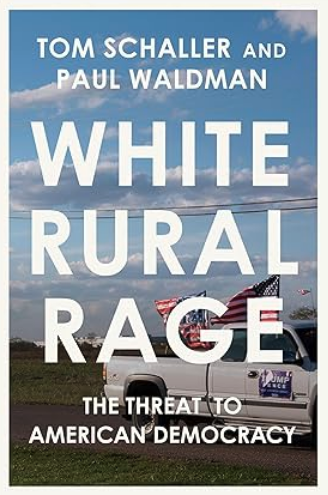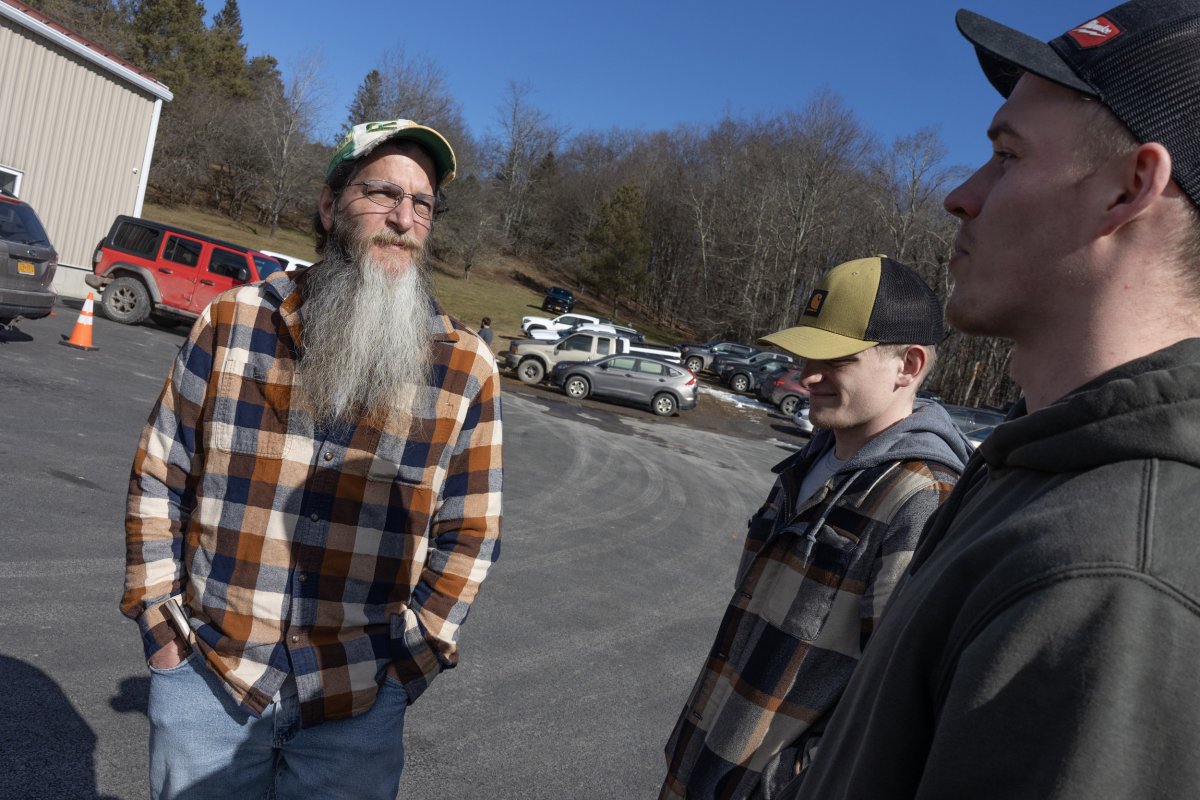American politics has hit an us-versus-them peak. Trust in institutions is declining rapidly. How did American society reach this point, and how to remedy the problem? These should be primary concerns, and it should be obvious that we make the problem worse when we rely on stereotypes to generalize from the extremes, especially in a media environment that rewards such behavior.
Unfortunately, a recent popular book on rural politics has done just this.

White Rural Rage by columnist Paul Waldman and political scientist Tom Schaller makes the claim that the root problem in our politics today lies squarely on the shoulders of white rural Americans. Yet the book makes a lot of negative assertions about this group without the methodological rigor or correct characterization of existing literature to back it up.
The authors make the claim that white rural Americans are rampantly conspiratorial, to the detriment of society. Yet they find that less than a quarter of them believe in conspiracy theories such as QAnon, and though this is seven percentage points higher than urban Americans, that difference in QAnon support loses statistical significance when controlling for other factors—in other words, this is not a distinctively rural phenomenon. The authors repeat this error on several topics.
White Rural Rage also accuses white rural America of being a hotbed of Christian nationalism, using assumptions without the evidence to back it up. And they argue that white rural Americans are more supportive of political violence, painting them as a very real and violent threat to the rest of the U.S., when the very study they cite to back this up actually found the opposite. And they have also been criticized for using data with sample sizes that are too small and biased to draw meaningful conclusions.
What about the rage that supposedly fuels this group? Other recent work has found that rural and small-town residents are actually more satisfied with where they live than people living in other places, and many rural Americans' sense of identity comes from feeling pride about the community they live in and the people they live with rather than anger and rage directed at non-rural America.
This is what I found in my dissertation and continue to find in my ongoing research: Rural Americans' identity is much more about positive emotions they feel toward rural areas and much less about negative emotions toward others. The idea that white rural Americans in general experience unhinged levels of rage is laughable. If you want to see how ridiculous white rural Americans find the idea that they are enraged, they have been posting about their supposed rage on X with pictures of benign, disarming, or exaggerated images, with the ironic caption: "How do you express your #whiteruralrage?"
The thing is, political anger isn't restricted to white rural America. It's something that's actually a shared experience across different walks of life in the U.S.: Most Americans when prompted to think about politics become angry, hateful, and afraid of the struggles of contemporary America, our current political climate, and people we perceive to be politically dissimilar. Partisan polarization based on strong negative emotions has become a harmful force in society that erodes democracy, and it's found in spades on the Right and the Left, and experts and intellectuals are no exception.

As political scientists and commentators in particular, we should be the most self-aware of this, not the ones who fall prey to it or make it worse. Yet because of White Rural Rage's lack of rigorous evidence that white rural Americans writ large are the greatest threat to U.S. democracy, the book starts to feel less like a carefully considered set of conclusions and more like an attack on a group of people who are the partisan other.
On that note, the authors of White Rural Rage cite my own work examining how people who feel that being rural is a strong part of their identity have a heightened distrust of experts and intellectuals. Why is this the case? There's a myriad of reasons, but White Rural Rage is a prime example of how intellectuals sow distrust by villainizing a group of people who are already disproportionately shut out from science, higher education, and similar opportunities.
Although the authors don't misrepresent my work, they do criticize rural Americans for their anti-intellectualism, building on tired tropes of rural people being backward, dumb, violent, and ignorant, while pushing a narrative that worsens such distrust in the first place. Scholars have found that any resentment in rural America is predominantly characterized by feeling disrespected and forgotten—that is, by this lack of trust.
Rather than solely blaming such distrust on the distrusting individuals themselves or on tertiary actors who aim to capitalize on such distrust by worsening it, there's also a moral responsibility to take a hard, honest look at what we as intellectuals can do to help remedy this increasing distrust in science, expertise, and academia in the U.S. (or at least, to not make things worse).
Rural America deserves better treatment than this, rather than being conveniently villainized and exaggerated into the dangerous boogeyman of modern America.
I want people to know that many researchers and academics do genuinely care about being meticulous and measured and about getting things right. Many of us prioritize and promote listening to the people that we're researching. And many of us care about reducing the rifts in society rather than stoking them.
But it's disappointing that the authors of White Rural Rage seem to miss their own complicity (or worse, understand it but don't care) in further inflaming the societal discord that they so vehemently criticize in others under the excuse of being "provocative."
Kristin Lunz Trujillo is an Assistant Professor of Political Science at the University of South Carolina. She studies rural political behavior, political and scientific trust, and public health attitudes. She received her PhD in Political Science, with a minor in Political Psychology, from the University of Minnesota in 2021. Kristin grew up on a corn and soybean farm in the upper Midwest.
The views expressed in this article are the writer's own.
Uncommon Knowledge
Newsweek is committed to challenging conventional wisdom and finding connections in the search for common ground.
Newsweek is committed to challenging conventional wisdom and finding connections in the search for common ground.
About the writer
To read how Newsweek uses AI as a newsroom tool, Click here.








